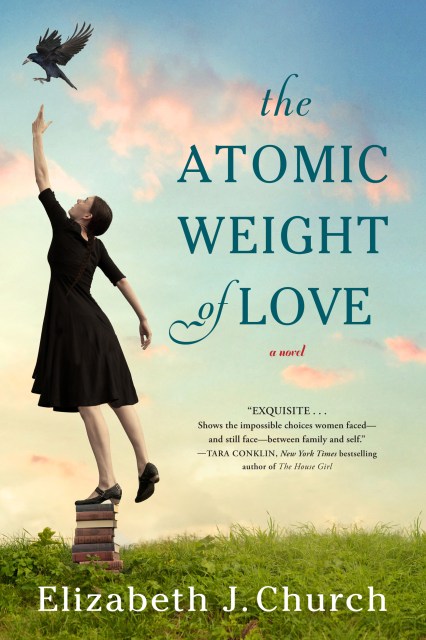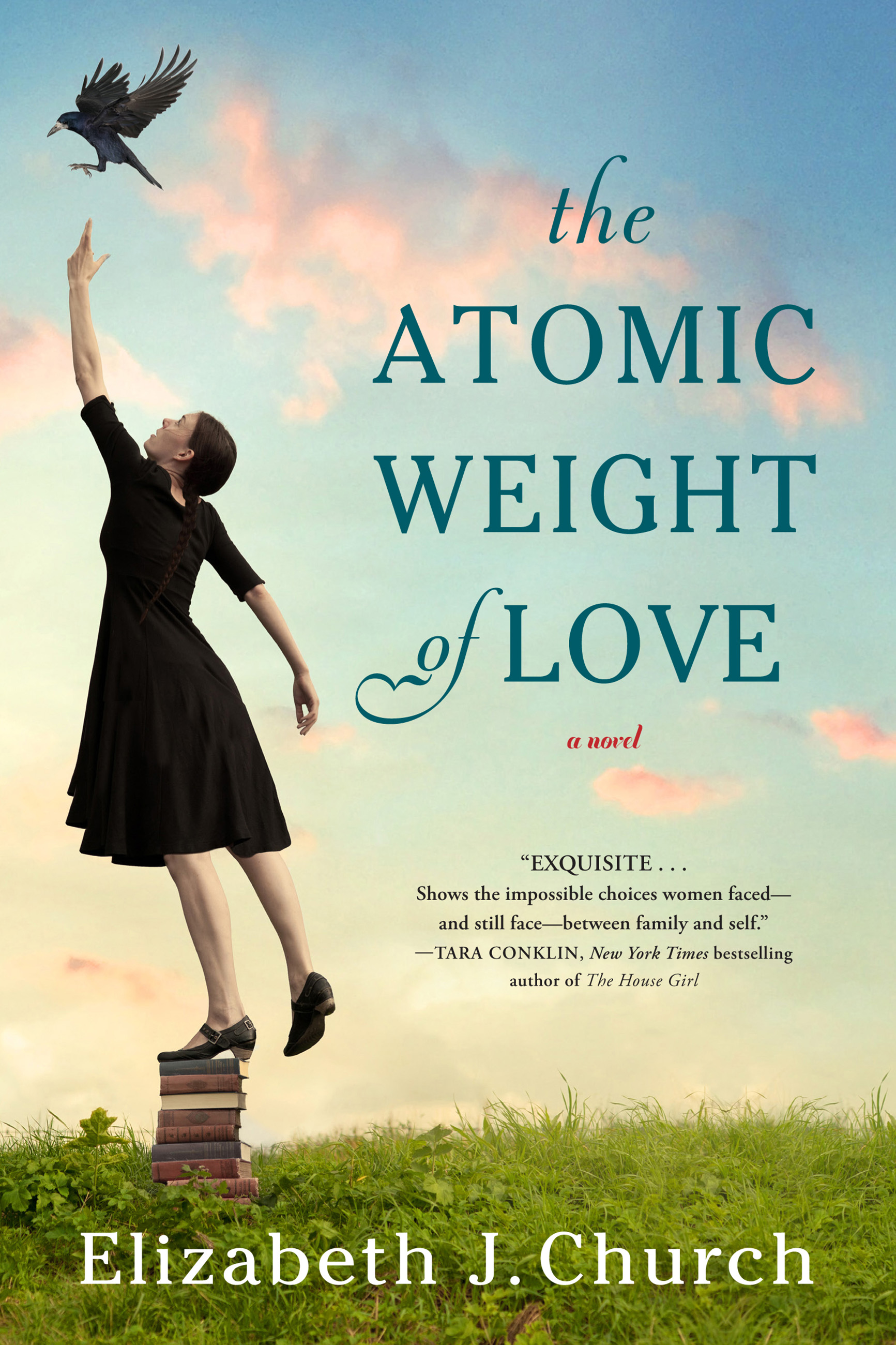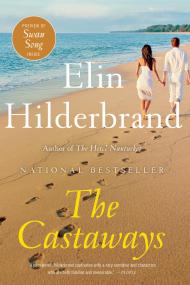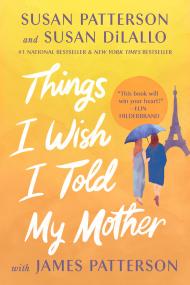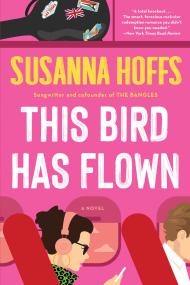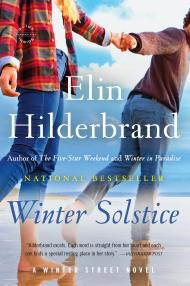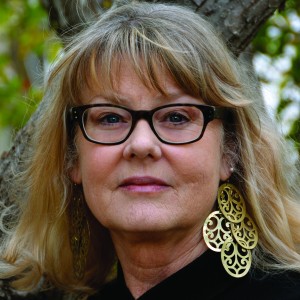Promotion
Use code MOM24 for 20% off site wide + free shipping over $45
The Atomic Weight of Love
A Novel
Contributors
Formats and Prices
Price
$10.99Price
$13.99 CADFormat
Format:
- ebook $10.99 $13.99 CAD
- Trade Paperback $15.95 $21.95 CAD
This item is a preorder. Your payment method will be charged immediately, and the product is expected to ship on or around May 3, 2016. This date is subject to change due to shipping delays beyond our control.
Also available from:
In her sweeping debut novel, Elizabeth J. Church takes us from the World War II years in Chicago to the vast sun-parched canyons of New Mexico in the 1970s as we follow the journey of a driven, spirited young woman, Meridian Wallace, whose scientific ambitions are subverted by the expectations of her era.
In 1941, at seventeen years old, Meridian begins her ornithology studies at the University of Chicago. She is soon drawn to Alden Whetstone, a brilliant, complicated physics professor who opens her eyes to the fundamentals and poetry of his field, the beauty of motion, space and time, the delicate balance of force and energy that allows a bird to fly.
Entranced and in love, Meridian defers her own career path and follows Alden west to Los Alamos, where he is engaged in a secret government project (later known to be the atomic bomb). In married life, though, she feels lost and left behind. She channels her academic ambitions into studying a particular family of crows, whose free life and companionship are the very things that seem beyond her reach. There in her canyons, years later at the dawn of the 1970s, with counterculture youth filling the streets and protests against the war rupturing college campuses across the country, Meridian meets Clay, a young geologist and veteran of the Vietnam War, and together they seek ways to mend what the world has broken.
Exquisitely capturing the claustrophobic eras of 1940s and 1950s America, The Atomic Weight of Love also examines the changing roles of women during the decades that followed. And in Meridian Wallace we find an unforgettable heroine whose metamorphosis shows how the women’s movement opened up the world for a whole generation.
In 1941, at seventeen years old, Meridian begins her ornithology studies at the University of Chicago. She is soon drawn to Alden Whetstone, a brilliant, complicated physics professor who opens her eyes to the fundamentals and poetry of his field, the beauty of motion, space and time, the delicate balance of force and energy that allows a bird to fly.
Entranced and in love, Meridian defers her own career path and follows Alden west to Los Alamos, where he is engaged in a secret government project (later known to be the atomic bomb). In married life, though, she feels lost and left behind. She channels her academic ambitions into studying a particular family of crows, whose free life and companionship are the very things that seem beyond her reach. There in her canyons, years later at the dawn of the 1970s, with counterculture youth filling the streets and protests against the war rupturing college campuses across the country, Meridian meets Clay, a young geologist and veteran of the Vietnam War, and together they seek ways to mend what the world has broken.
Exquisitely capturing the claustrophobic eras of 1940s and 1950s America, The Atomic Weight of Love also examines the changing roles of women during the decades that followed. And in Meridian Wallace we find an unforgettable heroine whose metamorphosis shows how the women’s movement opened up the world for a whole generation.
Genre:
-
“A tightly crafted novel.” —The New York Times Book Review
“Church's absorbing debut novel shows the loneliness and pain that exists for the woman behind the famous man . . . We see it all through the prism of Meridian Wallace Whetstone, a woman ahead of her time.” —Bookreporter.com
“Inspiring, empowering, and heartbreaking in turn.” —The Roanoke Times
“Church’s debut will likely strike a chord, especially with women who find that not much has changed in our patriarchal society since Meri’s time, and that Meri’s story might well be their own.” —Booklist
“Church's debut novel explores the relationship between sacrifice and love . . . Each sentence drives the plot further, exploring love's limits and its spoils. But it's Church's exploration of Meridian's role in her relationships that is the most gracefully executed feat of the novel. Meridian's voice is poignant, a mixture of poetry and observation . . . An elegant glimpse into the evolution of love and womanhood.” —Kirkus Reviews
“Church hits the mark in this emotionally driven debut that spans the chapters of a long life . . . What does love require of us? How does one strike a balance between compromise and self‑fulfillment? In her debut novel, Church writes to these issues in a style that is thoughtful and elegant.” —Library Journal
“Oh, what an incandescent debut! Church follows one extraordinary woman, who is brave to enough to challenge the times, take defiant wing, and chart her own extraordinary flight path. So engrossing, I couldn’t wait to read another page, and so alive, I never wanted the story to end.” —Caroline Leavitt, author of Is This Tomorrow and Pictures of You
“This exquisite debut is the beautifully written story of a woman who must negotiate the tricky terrain of love, responsibility, ambition and sacrifice. In her impeccable portrayal of a long marriage, Elizabeth Church weaves together the historical and the personal and shows the impossible choices women faced--and still face--between family and self.” —Tara Conklin, author of The House Girl
- On Sale
- May 3, 2016
- Page Count
- 352 pages
- Publisher
- Algonquin Books
- ISBN-13
- 9781616206116
Newsletter Signup
By clicking ‘Sign Up,’ I acknowledge that I have read and agree to Hachette Book Group’s Privacy Policy and Terms of Use
